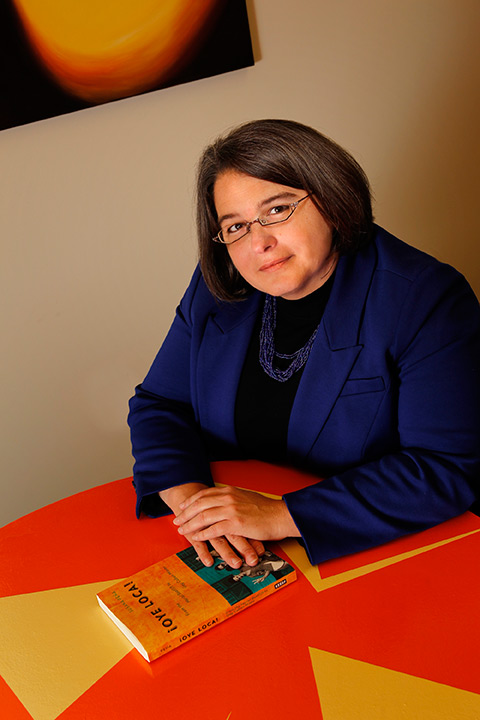Peña learns leadership lessons for women in higher ed
 Dr. Susana Peña understands the role of faculty administrators. As director of the School of Cultural and Critical Studies and a faculty member in the Department of Ethnic Studies, Peña has experienced the progression from faculty to administrator and admits this transformation at colleges and universities across the globe often occurs without sufficient training.
Dr. Susana Peña understands the role of faculty administrators. As director of the School of Cultural and Critical Studies and a faculty member in the Department of Ethnic Studies, Peña has experienced the progression from faculty to administrator and admits this transformation at colleges and universities across the globe often occurs without sufficient training.
With a plan to advance her leadership skills in her faculty-administrator role, Peña accepted the recommendation from Dr. Raymond Craig, dean of the College of Arts & Sciences, to attend the Higher Education Resource Services (HERS) Summer Institute at Bryn Mawr College this summer.
The institute is an intensive, two-week program that focuses on helping advance women to senior leadership positions throughout the ranks of faculty and staff. Peña, who was one of 56 participants at the Bryn Mawr session, said the experience was invaluable and helped start to define her own pathway to leadership. She had the opportunity to learn from the skilled women who led the sessions as well as from other institute participants, who shared their own perspectives and challenges.
According to a benchmarking study done by the Colorado Women’s College two years ago, women account for less than 25 percent of leadership positions in higher education — a surprising number, given that more female students enroll in college and pursue advanced degree than their male counterparts.
“This was a great opportunity for me and for BGSU,” Peña said. “I was able to see the university from the 35,000-foot perspective,” to learn about perspectives of different leaders in an institution and to see how they interact.
“It helps to understand others’ needs and to know what their challenges are,” she explained. “As you see different perspectives and how they intersect, you can foresee challenges and plan for them.”
The ability to reframe situations can be helpful in leadership positions and helps individuals lead “authentically” and stay focused on goals, she said.
The challenge of working with limited resources was a common issue for most participants, Peña said. “We were taught to consider different kinds of resources and think about multiple things we can provide and negotiate for to benefit everyone.”
Among the best benefits of the conference was working with women from such diverse backgrounds, ranging from small liberal arts and community colleges to large research universities and historically black colleges and universities.
“This was a wonderfully collaborative group of people who helped me realize that one of my goals is helping to make our institution, at the core, more diverse and inclusive, serving students and hiring faculty from diverse backgrounds, and transforming the institution.
“I see myself playing a leadership role in the future, not necessarily as a provost or president, but the University benefits from thoughtful leaders at all levels,” Peña said.
Craig said he is happy that Peña took advantage of the opportunity as the first BGSU representative to the institute, and plans to support participation each year for one or two women from the college. “This is a win-win situation for our women in leadership roles and for BGSU,” he said.
Updated: 12/02/2017 12:48AM
